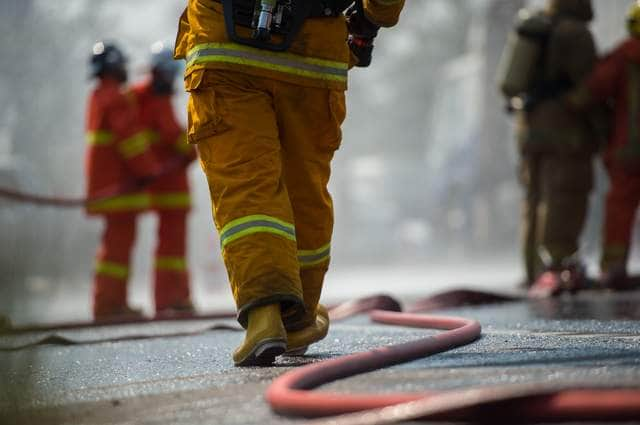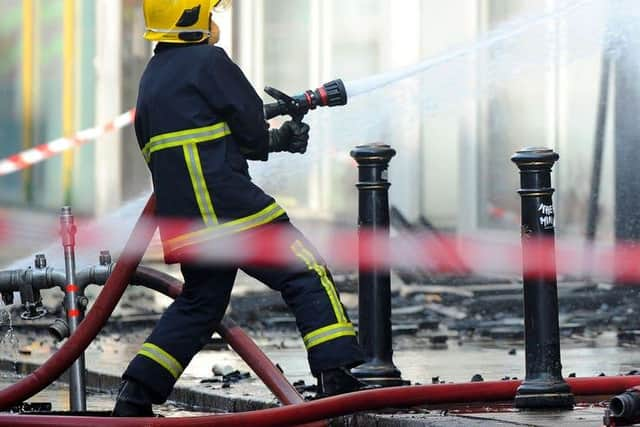How many West Midlands firefighters have lost jobs in the last 20 years?
This article contains affiliate links. We may earn a small commission on items purchased through this article, but that does not affect our editorial judgement.
and live on Freeview channel 276
Britain has lost at least 9,000 firefighter jobs in the past decade, raising concerns that emergency crews are not prepared for the effects of climate change despite being at the forefront of the crisis.
Some 8,000 fewer people are working as firefighters in England than they were in 2011, official figures show, while Scotland and Wales have also lost hundreds of posts. The analysis comes after the UK reached record-breaking temperatures during the recent heatwave, triggering a number of wildfires across the country. The severe weather resulted in the London Fire Brigade declaring its busiest day since World War Two as it tackled multiple blazes across the city.
Advertisement
Hide AdAdvertisement
Hide AdThe Fire Brigades Union (FBU) said their staff have been “under attack” from government cuts and said politicians and Fire Chiefs have been warned of the risks posed by climate change.


What do the figures show in the West Midlands?
The figures show that in the last 20 years, between 2002 and 2021, West Midlands Fire Service has lost 639 (31.4%) full-time equivalent firefighters. The service had 2037 fire fighters in 2002, this number dropped to 1398 in 2021.
What about the rest of the country?
Across England’s fire and rescue services, the number of people working as firefighters has fallen by 21% in nearly 20 years - a loss of more than 9,000 posts. The headcount plunged from 44,594 in 2002 to 35,279 in 2021, Home Office figures show.
In full-time equivalent terms, firefighter numbers fell by 26% in the same timeframe, from 42,374 in 2002 to 31,547. West Yorkshire has seen the greatest percentage fall in full-time equivalent firefighters since 2002, of 46%, followed by Merseyside with 45% and Tyne and Wear with 42%.
Advertisement
Hide AdAdvertisement
Hide Ad

What’s been said about the figures?
Matt Wrack, general secretary at the Fire Brigades Union (FBU), said government ministers had been warned year after year of the risks posed by climate change yet had continued to cut firefighter jobs.
“Firefighters are at the forefront of the climate emergency,” he said.
“The demands of the job are increasing but our resources have been under attack by government cuts for over a decade. We have warned of the growing threat for years but our concerns have fallen on deaf ears. The brutal truth is that government ministers and Chief Fire Officers have ignored the warning signs which have been obvious for all to see.
“The fire and rescue service should plan for foreseeable risk. The stark reality is that frontline firefighters and local communities have been let down by a combined failure of Chief Fire Officers and politicians to face up to the scale of the challenge. It is simply untrue to say they have not been warned year after year of the risks posed by climate change.”
A message from the editor:
Advertisement
Hide AdAdvertisement
Hide AdThank you for reading. BirminghamWorld is Birmingham’s latest news website, championing everything that is great about our city - reporting on news, lifestyle and sport. We want to start a community among our readers, so please follow us on Facebook,Twitter and Instagram, and keep the conversation going.
Comment Guidelines
National World encourages reader discussion on our stories. User feedback, insights and back-and-forth exchanges add a rich layer of context to reporting. Please review our Community Guidelines before commenting.
